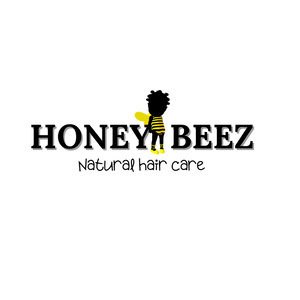When it comes to hair care, the world of products can often be overwhelming, leaving us wondering what each one does and whether it's necessary. Two such products that often cause confusion are hair masks and deep conditioners. Both claim to provide nourishment, hydration, and revitalization to our hair, but what sets them apart? In this article, we'll dive into the world of hair masks and deep conditioners, uncovering their differences, benefits, and how you can make the most of them for your hair's health.
Understanding Hair Masks and Deep Conditioners
Before we delve into their differences, let's understand what each product is and how it functions:
Hair Masks:
A hair mask is a treatment designed to target specific hair concerns. It typically contains a higher concentration of nourishing ingredients that work to repair, strengthen, and restore your hair. Hair masks often include natural oils, proteins, vitamins, and other potent ingredients to provide a deep level of care. They are formulated to be used less frequently, usually once a week or bi-weekly, depending on your hair's needs.
Deep Conditioners:
Deep conditioners are also intensive treatments for the hair, but they tend to have a lighter consistency compared to hair masks. They focus on providing moisture and hydration to the hair, making them ideal for tackling dryness, frizz, and improving overall manageability. Deep conditioners are generally used more frequently than hair masks, often after every shampoo or as needed.
Key Differences
Consistency and Usage:
The texture of the product is a key differentiator. Hair masks are thicker and more concentrated, making them ideal for infrequent use. Deep conditioners are lighter and can be used more often without overwhelming the hair with too much product.
Ingredients and Benefits:
Hair masks often contain a richer blend of ingredients aimed at repairing and treating specific hair concerns, such as damage from heat styling or chemical treatments. Deep conditioners primarily focus on hydration and moisture retention, making them perfect for maintaining hair health.
Frequency:
Hair masks are used less frequently due to their potent formula. They are usually reserved for a weekly or bi-weekly deep treatment. On the other hand, deep conditioners can be used more regularly, even after every wash, to maintain moisture balance.
Hair Type and Concerns:
Hair masks are tailored to address various hair problems, from breakage to split ends. They are particularly useful for those with damaged or heavily processed hair. Deep conditioners are great for anyone seeking to manage dryness, frizz, or improve overall hair texture.
Making the Most of Honey Beez Hair Masks and Honey Beez Deep Conditioners
Honey Beez Renewal and Moisturizing Hair Mask Application:
Apply a hair mask after shampooing, focusing on the mid-lengths and ends where damage is most prominent. Leave it on for the recommended time, usually around 15-30 minutes, and then rinse thoroughly. Follow up with conditioner if needed.
Honey Beez Intensive Moisturizing Deep Conditioner Usage:
Use a deep conditioner after shampooing. Gently massage it into your hair, concentrating on the lengths and ends. Leave it on for a few minutes (15 -30 minutes) before rinsing.
Consistency is Key:
For optimal results, consistency matters. Incorporate hair masks into your routine for deep repair, and use deep conditioners regularly to maintain moisture balance and improve manageability.
In conclusion, both hair masks and deep conditioners play crucial roles in maintaining healthy and beautiful hair. They serve different purposes, so it's essential to choose the one that aligns with your hair's needs. Honey Beez Renewal and Moisturizing Hair Mask offer intensive repair and treatment, while Honey Beez Moisturizing Deep Conditioner focus on hydration and daily maintenance. By understanding their differences and benefits, you can unlock the secrets to healthy nourished moisturized hair and take confident steps toward achieving your hair care goals.

